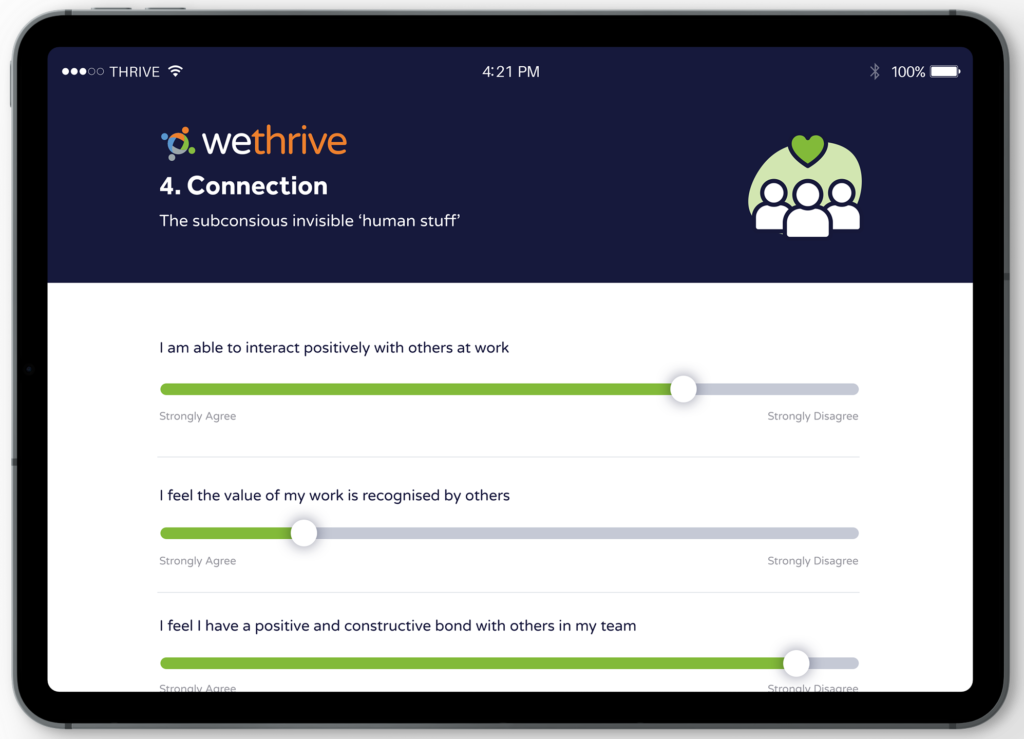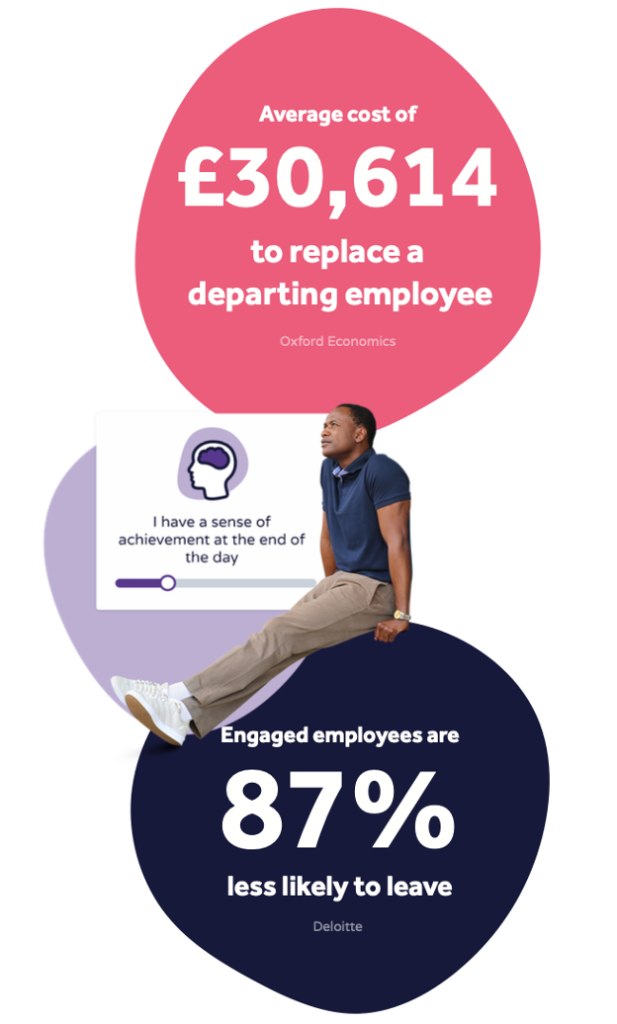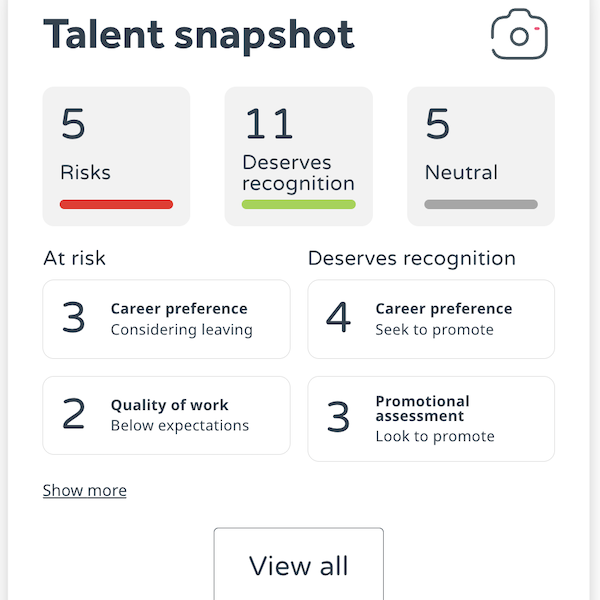With so much competition for talent and the high cost of recruitment, there is no doubt that staff retention is vital. A positive company culture is essential, and the starting point is for employers to actually listen to their people.
Unfortunately, most engagement and listening strategies fail to deliver effective, actionable results. Often, employers don’t know where to start, what to ask, or how to deal with responses. The annual company survey just doesn’t cut it anymore.
So, why does it go wrong? Here are 5 common mistakes to avoid…
1. Listening badly (or not at all)
Far too many organisations believe they receive accurate and useful feedback from their people. But heads of organisations often base their understanding from conversations with their line managers, and you cannot solely rely on anecdotal feedback from your managers.
This kind of feedback is sporadic and inconsistent. It’s filtered and will inevitably be skewed by unconscious bias. If you want to have a people strategy where you act with clarity and certainty, you need regular, measurable, and objective feedback.
The challenge for HR departments is that they’re always dealing with ‘lag’ indicators. By tuning into employee voice on a regular and consistent basis, you will have your ear to the ground, and can pick up what’s going on to act before problems develop.
There is a legal requirement for you to manage stress for your people at work. So don’t listen badly. Do it consistently. Don’t rely on word of mouth.
2. Waiting until you get a “good score”
If you are asking people to rate their work experiences, you probably don’t want to receive poor scores. Inevitably, the temptation is to wait until everything is in place, which often becomes an exercise in procrastination.
It’s NOT about the score. It is about knowing where you are and what you do next. The score is not the point – it is listening and understanding where people are now. The most important thing is what you do once you’ve got that information and where you take them next.
If you wait, the consequences are likely to be much worse. If you don’t listen to your people, you won’t address their needs. One day, they’re not going to be there. They’re going to resign, and then you’re left with an empty seat that must be filled. If you’re sitting there pondering when to do this, just do it. Ignorance is not bliss!
3. Asking the wrong questions
There are many pitfalls when compiling a survey.
It is easy to ask leading questions. We all have a set of innate biases, no matter how hard we try to avoid them.
The choice of words has an impact. A word will trigger different responses for different people. You must be really careful about the language you use and understand how that triggers people.
It is important to be consistent. We often hear of people changing the questions, when they don’t receive the response they want. Chopping and changing questions does nothing to help you understand what’s actually going on for your people. And you will not be able to compare results.
Other issues include asking too many questions or setting questions that don’t yield valid data.
 4. Not getting to the ‘why’
4. Not getting to the ‘why’
A lot of listening activities uncover top level themes or topics, but don’t get to the causes of the issues. Uncovering thematic information may be interesting but it is not actionable.
You must get to the ‘why’ by asking intelligent questions and digging deeper. Ultimately lack of knowing ‘why’ means the ‘what’ is likely to be wrong.
5. Not taking action
There is nothing worse than saying how much you value your people on your ‘About Us’ page when it isn’t matched by action. The same applies to running a staff survey if absolutely nothing changes as a result of it. You must commit to acting.
We speak to people all the time who do a listening survey but haven’t done anything with it six months later. It’s so painful to hear what the people in their organisation are thinking: “I told you how I felt in September, it’s now March and we’ve done nothing.” It is culture suicide.
Trust is everything. If you listen and do not act, engagement will drop. “You said, we did” in a newsletter is a good start.
Get a plan, know your outcomes and WHY you must achieve them. You should know your outcome. What does success look like?
How to avoid the mistakes
What prevents organisations getting it right?

The biggest thing that stops human beings doing anything is fear. And asking for feedback can be scary. But to get the results you want, you have to face up to your fears.
Facing fears
In the words of Nelson Mandela, “I learned that courage was not the absence of fear, but the triumph over it. The brave man is not he who does not feel afraid, but he who conquers that fear.”
Fear 1. It will take so much time (I’m soooo busy)
Are you busy dealing with the fallout from a weak culture? Are you constantly backfilling roles because people are leaving? Are people constantly off sick?
You’re never going to change these problems unless you tune
A listening strategy will alleviate these challenges. You can reduce the time it takes by working with a professional. There is no need to spend time and effort writing questions and loading them into Google Forms or Survey Monkey.
It shouldn’t all sit with you. Culture is everybody in the organisation. You can offer direction, but everyone else must also own it. It starts with senior leaders, team leaders, and managers, but includes everybody.
Fear 2. I don’t want to hear anything bad
People think they are going to get a horrible set of answers, but actually surveys are almost never as bad as you think they’re going to be. There are always some incredible gems in feedback. We always advocate shouting about the positive. Understand what’s working well – and then look at what needs to change.
Don’t take feedback personally. People have all sorts of preferences and worries. They may let rip a little bit in your survey, but it’s not about you!
Celebrate the successes and see the low scoring areas as opportunities.
Fear 3. We won’t be able to act on the feedback
There will always be things that you can action.
At WeThrive, we always offer action points and recommendations so that you can be completely clear about what you need to do next.
Share the feedback with managers and employees so that they can all participate – culture is everybody in the organisation, not just the HR team.
Fear 4. I will have to own it all and so it will probably fail
We hear too often: “I’ll probably end up owning it and I’m already busy.”
It is a question of empowering other people in the organisation and holding them accountable. By defining the ‘why’ and having clearly defined actions, HR has a unique opportunity to act as a coach within the organisation for culture. It can support managers and individuals in the execution of their action plans, as opposed to just running the survey.
Fear 5. The MD/board won’t give me the budget
The better question is can they afford not to?
CEOs and boards don’t always understand the connection between people and profit. There’s an educational problem here. It is worth showing them the research and white papers by respected sources like Harvard, Deloitte and PwC.
It is also worth mentioning that the average cost in the UK to replace someone is over £30,000. Staff retention saves money. Read “ROI: Why not investing in your people will cost you a fortune” to learn more.
Take action
There were 4.3 million mental health referrals in 2021, so there’s an imperative to act.
If you want to improve your employee engagement strategy and deliver actionable next steps directly to your managers or employees we can help. WeThrive tells you and your managers exactly where the opportunities are to help your people feel happier, listened to and more secure and engaged.
Try our engagement survey to see how it works or read our white paper to learn how to get buy-in for your engagement strategy.

 4. Not getting to the ‘why’
4. Not getting to the ‘why’

